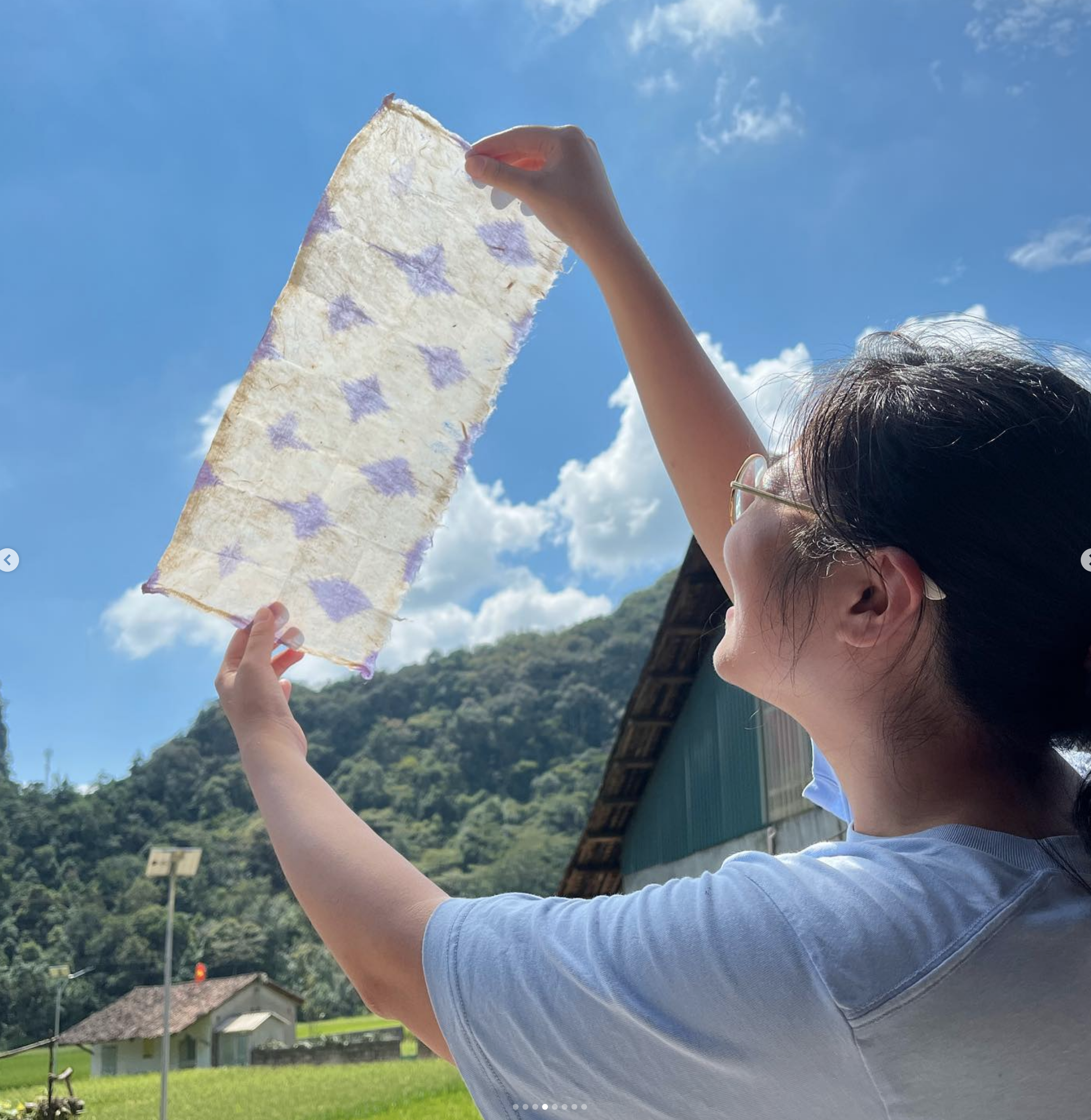Jennifer Lin’s Fellow Support Fund Update
During the height of the Covid-19 pandemic, several Shansi Fellows did not get the opportunity to travel to their host sites. They worked remotely for two years, demonstrating immense dedication to their students and colleagues without having met them face-to-face. In 2021, Shansi created the Fellows Support Fund, which was designed to give these fellows the opportunity to travel to Asia on their own terms - for an academic project or artistic exploration. Fellows Support Fund recipient Jennifer Lin discusses how the FSF funded her exploration of traditional Vietnamese papermaking.
Dear Shansi Friends and Supporters,
At Oberlin, I developed an interest in papermaking and paper arts. I was intrigued by how papermaking itself could be an act of documentation. The long, intersecting plant fibers that compose handmade paper remain intact for hundreds and hold some of our most historically significant images and texts. At the same time, a sheet of paper carries significance within itself, reflecting both the environment it came from and the experiences of the person who made it.
Zó Project is a social enterprise based in Hanoi that aims to preserve and innovate traditional Vietnamese papermaking. The foundations of the organization are rooted in building community by supporting artists through establishing sustainable art practices and developing international creative networks. Trần Hồng Nhung, the founder of Zó Project, would often work with different groups of papermakers on-site to strategize new ways to develop their craft and build knowledge-sharing systems. For example, Nhung introduced the use of colored dyes and patterns into dướng paper-making techniques in Cao Bằng.
In the spring of 2023, I connected with Nhung about collaborating on a project together. Using my Fellow Support Fund, we aimed to create a documentary that would introduce dó and dướng papermaking to wider audiences and underscore the importance of protecting cultural heritage and crafts. The documentary follows the papermaking process, from the artisan who constructed the bamboo screens used to form pulp to contemporary artists who use dó paper in their practice. We traveled to different cities in the northern regions of Vietnam—starting in Hanoi and ending in Cao Bằng—interviewing and documenting the work of papermakers, painters, artisans, carpenters, and record-keepers.
During these interviews, I noticed the impact community building had in creating space for hope and change. Before Nhung had connected them, individuals who sold dó paper rarely communicated with the papermakers who produced their product. Similarly, papermakers never met the craftsmen who fashioned their tools or the artists who used their paper. It was only after Nhung introduced them that they started to develop relationships that extended beyond transactions. Many of the people we spoke to shared that, following that shift, they felt more positively about the future of dó papermaking and better supported as a part of a larger community. Without these connections, critical cultural information and history would be lost.
The value placed on generosity and community was demonstrated by the warmth of all the people I worked with on this shoot. Whether in an artist's studio in Hanoi or someone's living room in Bắc Ninh, Nhung and the crew were always welcomed with home-cooked meals, laughter, stories, and lots of karaoke. I deeply appreciate Nhung’s mentorship over the course of the documentary and admire her commitment to the people she is in community with.
I'm also very grateful to my two friends, Grace Zhang and Eileen Yoon, who brought the project to life with their knowledge, skill, and expertise as co-founders of Ozu Was Right. We also were able to partner with a production studio based in Ho Chi Minh City/Saigon called Naïve Studio. Thành Trí, a member of the studio, joined our crew as an amazing production assistant, translator, and photographer. I wouldn’t have been able to shoot this documentary without them.
As of now, the film is still in post-production, but we are aiming to have it completed this fall. As always, I'm grateful for the continued support that Oberlin Shansi has provided me since the pandemic and as I transitioned out of my fellowship. I'm looking forward to sharing the documentary with everyone when it's ready!
More soon,
Jenn






